Texas Personal Injury Laws
The complexity of Texas personal injury laws underscores the importance of a nuanced understanding for those seeking justice in the wake of an accident or injury. These laws, intricate in their design, serve not only as a mechanism for compensation but also as a deterrent against negligence. With statutes that range from medical malpractice to motor vehicle accidents, and unique provisions like the Texas Dram Shop Law, the landscape of personal injury law in Texas is both vast and specialized. As we explore the essential facets of these laws, one might consider the significant implications they hold for both individuals and businesses, inviting further exploration into how these legal principles are applied and enforced within the state.
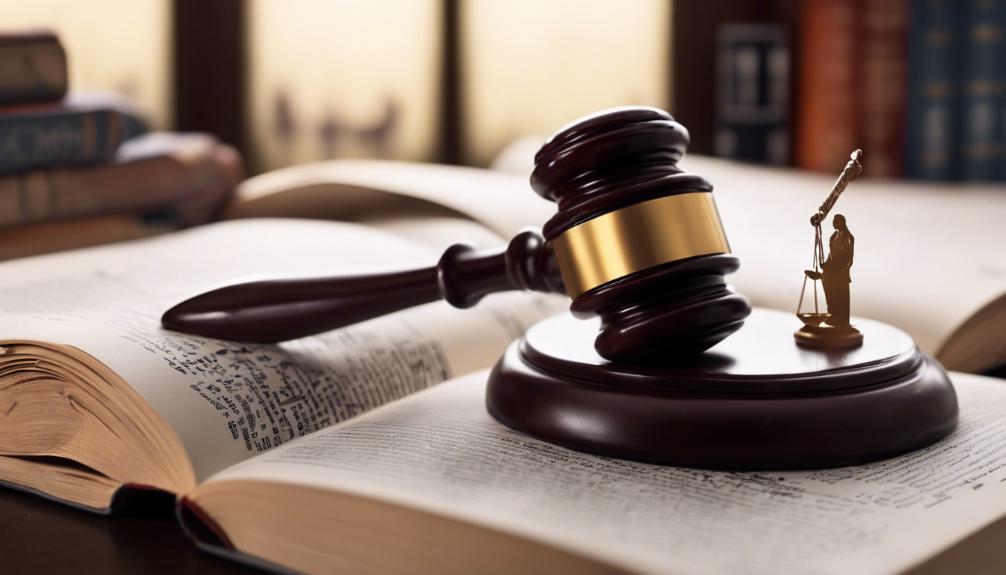
Key Takeaways
- Texas personal injury law aims to compensate victims of negligence or intentional acts through financial restitution.
- The state has specific regulations for medical malpractice, including caps on non-economic damages and expert witness requirements.
- Motor vehicle laws in Texas follow an at-fault system, necessitating minimum liability insurance for drivers.
- A two-year statute of limitations applies to personal injury lawsuits in Texas, with certain exceptions that can alter this timeframe.
Understanding Personal Injury Law

Personal injury law, a crucial component of civil litigation, seeks to provide legal recourse for individuals who have suffered harm due to the negligence or intentional acts of others. Distinct from criminal law, which addresses offenses against the state, personal injury law operates within the civil law sphere, focusing on compensating victims rather than penalizing the perpetrator. It encompasses a broad range of incidents, including accidents, slips and falls, and medical negligence. The primary aim is to restore the injured party to their pre-injury status through financial compensation. This area of law underscores the civil rights of Texans, ensuring they have access to justice and redress in the face of personal harm, without delving into specialized statutes that cater to specific scenarios.
Specialized Texas Laws
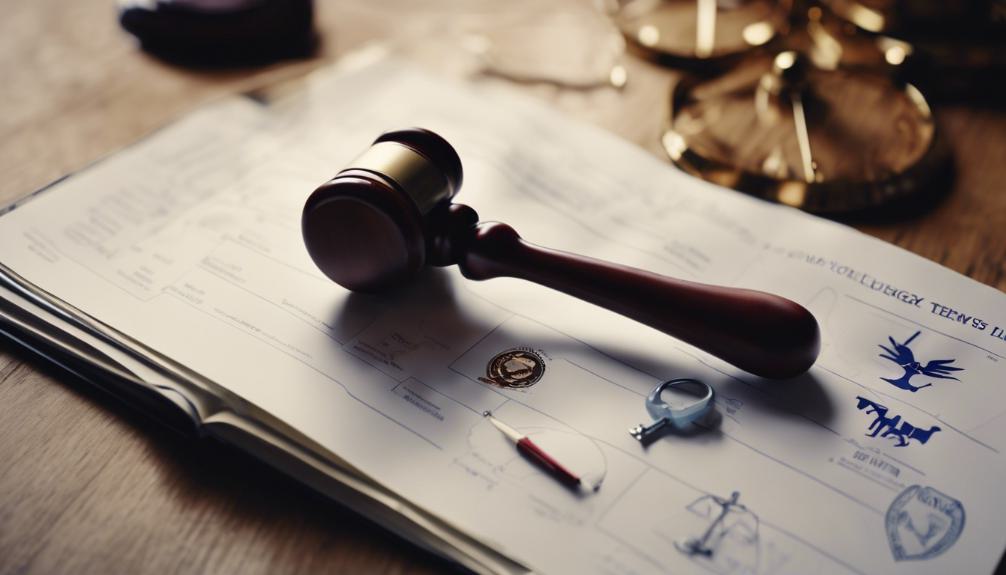
Texas's legal framework includes specialized laws tailored to address specific areas of personal injury, ranging from medical malpractice to car accidents. Beyond thorough medical malpractice, which has its own detailed set of regulations, Texas law provides specific guidelines for cases involving car accidents, emphasizing an at-fault system that requires the responsible party to compensate for damages. The state also enforces a zero-tolerance policy for DUI, reflecting its commitment to road safety. Additionally, Texas's Dram Shop Law holds alcohol-serving establishments accountable for damages caused by intoxicated patrons, a unique aspect of its approach to personal injury. Product liability and premises liability laws further protect Texans by imposing strict liability on manufacturers for defective products and ensuring property owners maintain safe environments, respectively. These specialized laws collectively aim to uphold the rights and safety of individuals across a variety of circumstances.
Medical Malpractice in Texas
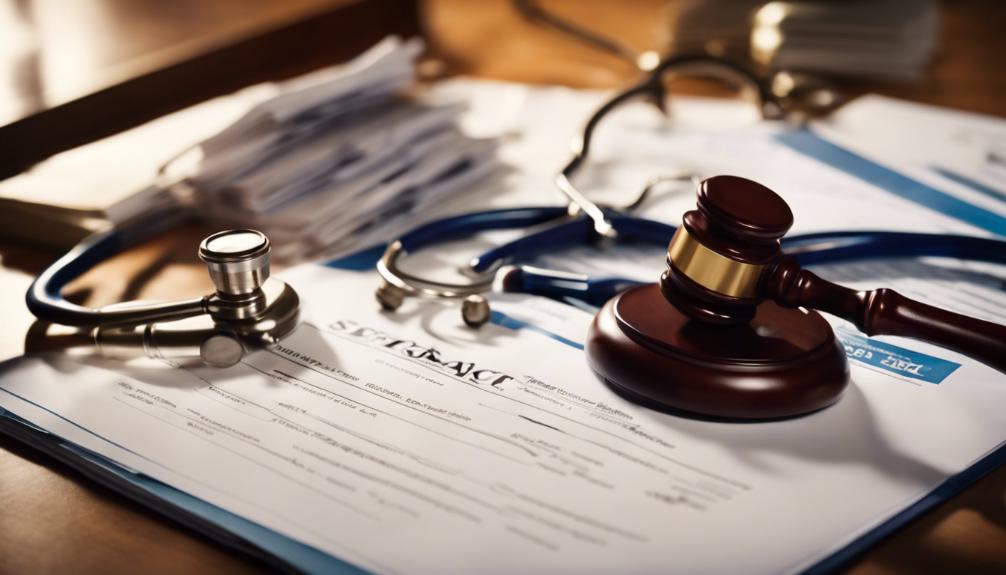
Building on the foundation of specialized laws, the focus now shifts to the nuanced area of medical malpractice in Texas, an aspect integral to the state's personal injury legal landscape. The Lone Star State has particular provisions that govern claims of negligence or misconduct by healthcare professionals and institutions. A critical requirement for plaintiffs is the necessity to have an expert witness who can testify about the standard of care breached by the defendant. This prerequisite underscores the complexity of medical malpractice suits, distinguishing them from other personal injury claims. Additionally, Texas law imposes caps on non-economic damages in these cases, limiting the financial recovery for pain and suffering. This legislative framework reflects a balance between protecting patients' rights and preventing excessive litigation that could impact the medical profession adversely.
Motor Vehicle Laws
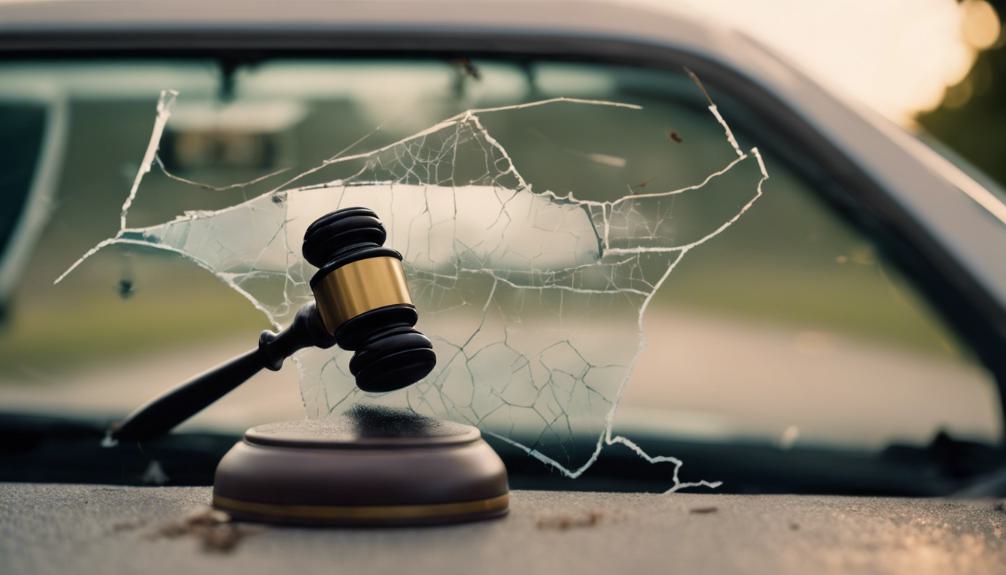
Shifting gears to another critical aspect of Texas personal injury law, motor vehicle laws encompass a wide range of regulations and legal standards that govern how vehicular accidents and their consequent injuries are handled in the state. Central to this framework is the at-fault system, which mandates that the driver responsible for causing the accident bears the financial burden of the damages. This system necessitates that all drivers possess a minimum level of liability insurance to cover potential claims. Additionally, Texas law stipulates specific procedures for reporting accidents, especially those resulting in significant damage, injuries, or fatalities. Compliance with these procedural requirements is crucial for the protection of legal rights and the facilitation of claims processing, underscoring the importance of understanding and adhering to these motor vehicle laws in the aftermath of an accident.
Liability in Alcohol-Related Incidents
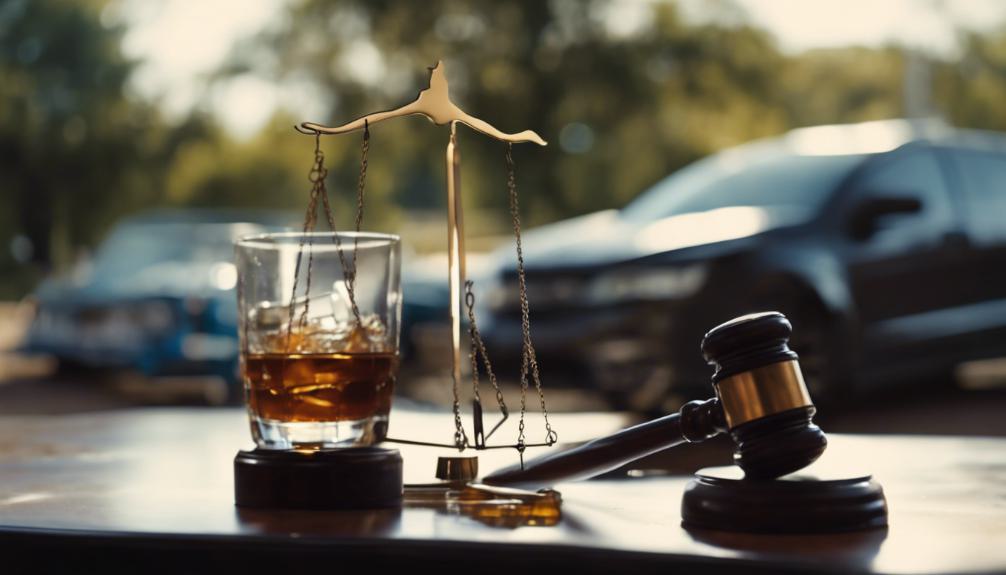
From the intricacies of motor vehicle laws, we now explore the domain of liability in alcohol-related incidents within Texas personal injury law. Central to this area is the Texas Dram Shop Law, which delineates the circumstances under which establishments like bars and restaurants can be held liable for damages caused by intoxicated patrons. This law is a critical component of Texas's efforts to mitigate the harm caused by alcohol-related accidents, providing a recourse for victims to seek compensation. Under the Dram Shop Law, an establishment may be liable if it served alcohol to an obviously intoxicated person who subsequently caused harm due to their intoxication. This framework underscores the responsibility of alcohol-serving businesses to contribute to public safety by regulating their service of alcohol diligently.
Product and Premises Liability

Shifting our focus to product and premises liability, it's crucial to understand the legal obligations manufacturers and property owners in Texas face to guarantee safety and prevent harm. Under Texas law, manufacturers are held to a strict liability standard for products that cause injury when used as intended. This means if a product is found to be defective and causes harm, the manufacturer can be held liable without the need for the injured party to prove negligence. Similarly, premises liability laws mandate that property owners make certain their premises are safe for visitors. This includes addressing potential hazards and providing adequate warnings about existing dangers. Failure to meet these standards can result in the property owner being held responsible for injuries sustained on their property, emphasizing the importance of adherence to safety regulations and proactive risk management.
Insurance Requirements

Understanding the insurance requirements in Texas is essential for businesses and individuals to guarantee compliance with state laws and provide adequate protection against potential liabilities. Texas mandates specific insurance coverages to safeguard against various risks. For businesses, Texas law requires the possession of commercial liability insurance, ensuring protection against claims of bodily injury, property damage, and personal injury. Moreover, companies utilizing vehicles for business purposes must secure commercial auto insurance, adhering to the state's minimum coverage standards. Workers' compensation insurance, although not compulsory for all businesses, is vital for providing benefits to employees who suffer work-related injuries or illnesses. Compliance with these insurance requirements is verified through Texas's established processes, ensuring that businesses and individuals carry the appropriate level of coverage to meet legal obligations and protect against financial losses.
Financial Considerations

After exploring insurance requirements in Texas, it is important to examine the financial aspects involved in personal injury laws within the state. In Texas, the amount one can sue for in a personal injury case is not unlimited. There are specific limitations on punitive and non-economic damages, designed to prevent exorbitant claims that could potentially destabilize the financial framework of the legal system. For instance, in medical malpractice suits, there are caps on non-economic damages such as pain and suffering. These financial considerations are critical for both plaintiffs and defendants as they navigate the legal process. Understanding these limitations is essential for setting realistic expectations regarding the potential financial recovery from a lawsuit.
Statute of Limitations

In Texas, the statute of limitations sets a deadline by which a personal injury lawsuit must be filed, a critical legal mechanism ensuring timely and fair resolution of disputes. Specifically, Texas law mandates that personal injury claims must be commenced within two years from the date of the injury. This period applies to a broad range of cases, from automobile accidents to medical malpractice claims. However, certain exceptions can extend or toll this deadline, such as when the injured party is a minor or when the injury was not discovered immediately. Understanding and adhering to these time limits is essential for any potential plaintiff, as failing to file within the statute of limitations typically results in the permanent forfeiture of the right to seek legal remedy for their injuries.
Frequently Asked Questions
How Does One Prove Emotional Distress in a Texas Personal Injury Case?**
To prove emotional distress in a personal injury case, one must typically present evidence of the psychological impact, such as medical records, expert testimony, and documentation of therapy or counseling sessions.
This Question Delves Into the Specifics of How Plaintiffs Can Demonstrate the Psychological Impact of an Injury, Which Might Not Be Covered in General Discussions of Personal Injury Law or Financial Considerations.
This inquiry explores methods for plaintiffs to substantiate the psychological effects of an injury, focusing on evidence beyond typical legal and financial discussions, highlighting the importance of nuanced approaches in demonstrating emotional distress.
What Are the Rights of Undocumented Immigrants in Filing Personal Injury Claims in Texas?**
Undocumented immigrants in Texas hold the right to file personal injury claims, akin to legal residents and citizens, allowing them to seek compensation for injuries sustained due to another's negligence or intentional acts.
Legal Protections and Processes for Undocumented Immigrants Often Remain Unaddressed in Standard Sections on Personal Injury Law, yet Are Crucial for a Significant Portion of the Texas Population.
In the tapestry of legal protections, the threads representing undocumented immigrants often fade into the background, yet their significance cannot be overstated, especially within the complex landscape of personal injury law.
How Does Texas Personal Injury Law Address Injuries From New Technologies, Such as Drones or Autonomous Vehicles?**
The question inquires about the application of Texas law to injuries caused by emerging technologies, such as drones or autonomous vehicles, emphasizing the legal framework's adaptability to address harms from these modern sources.
Conclusion
In the vast expanse of Texas, the legal landscape unfurls like the diverse terrain itself, offering protection and recourse through its personal injury laws. These statutes serve as beacons of justice, guiding those injured by negligence or malfeasance towards the harbor of compensation. As the sun sets on the horizon of adversity, understanding these laws becomes a lighthouse for piloting the complex waters of civil litigation, ensuring that the injured can sail towards a future where damages are acknowledged and redressed.

This post has been generated by AI and was not reviewed by editors. This is Not legal advice. Please consult with an attorney.




